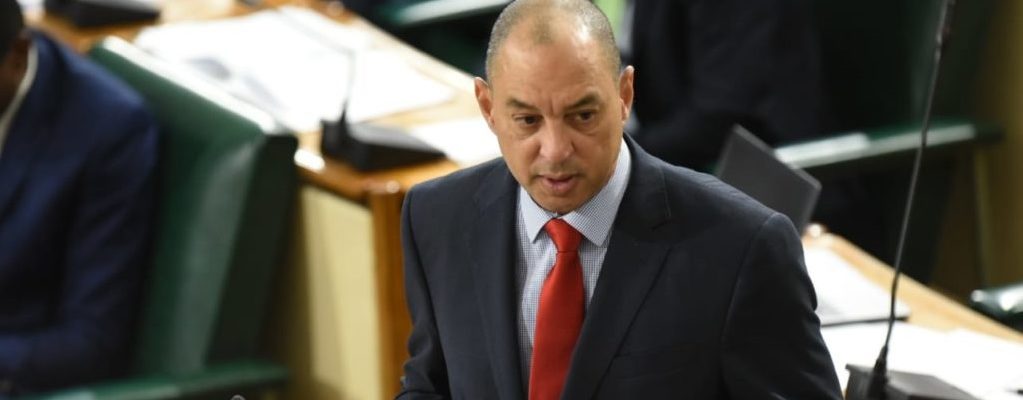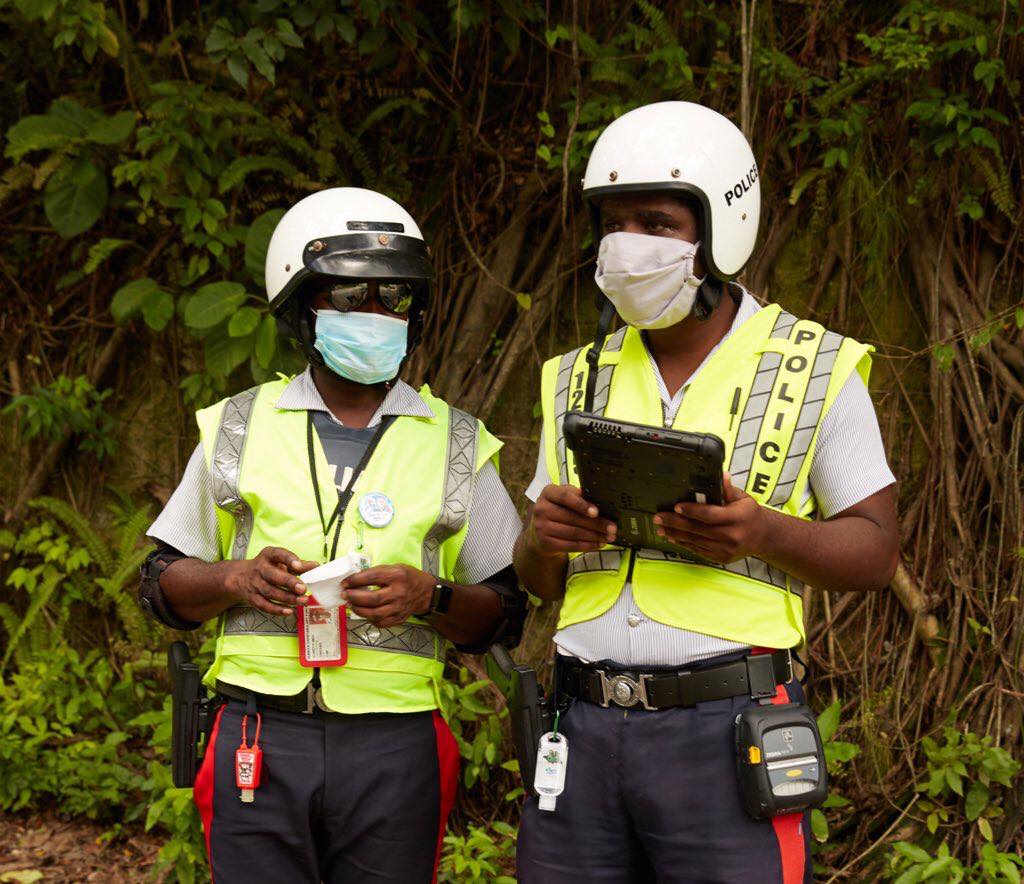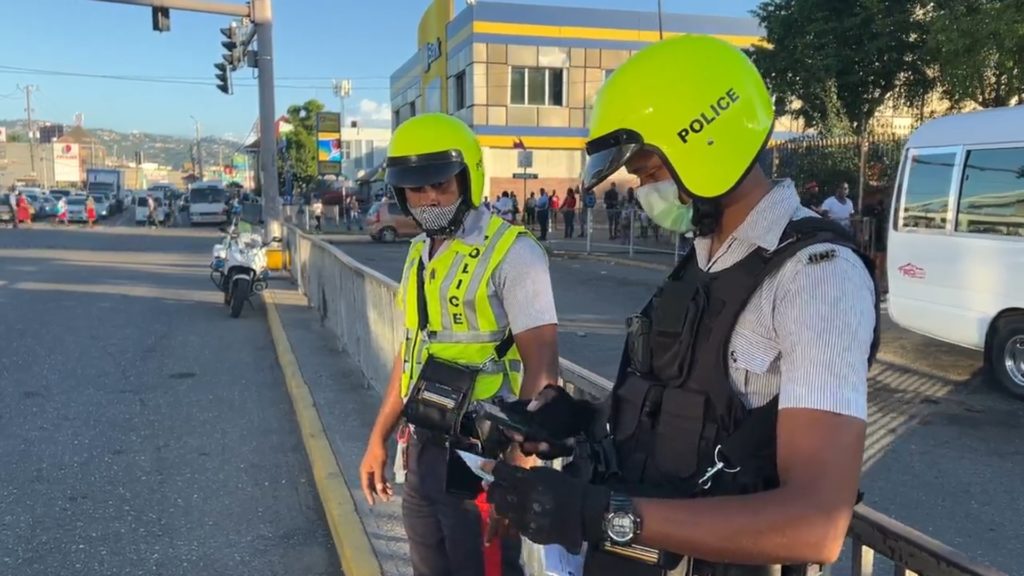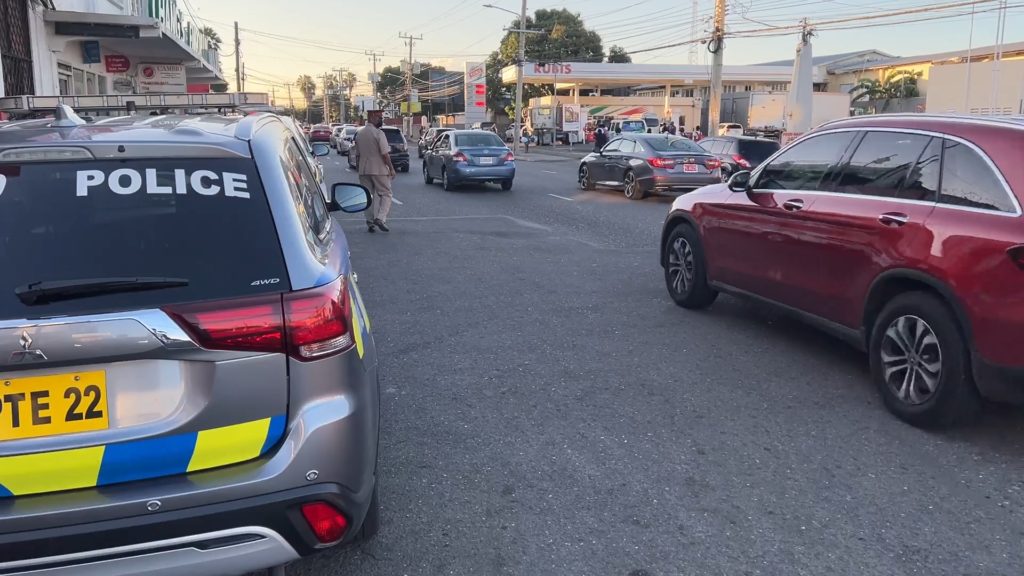

The following is Senator Don Wehby’s contribution today (July 29) to the debate in the Upper House of Parliament on the Road Traffic Regulations.
It has taken a very long time for the Regulations to get to this stage. I want to commend the Minister of Transport and Mining Audley Shaw for making this legislation a priority since his appointment earlier this year, with a focus on eliminating indiscipline on our roads. When passed the Regulations will go a long way in restoring law and order on our nation’s roads.
When I look at what’s happening, not just on the roads, but the general behaviour of our citizens, it is clear to me that there is a breakdown of law and order in our society. Many years ago, 1994 to be precise, then Prime Minister PJ Patterson announced the Values and Attitudes programme -a national strategy and programme of action to promote attitudinal change and social renewal. I thought that would have been a good initiative that we could build on to help restore the “good old Jamaican values”.

We need to instil positive values and attitudes in our basic schools and in every classroom in Jamaica- respect for each other. Civics used to be taught in schools. Civics helped young people to learn and utilise the skills, knowledge, and attitudes that will prepare them to be competent and responsible citizens of our country. Civics needs to be reintroduced as a part of the school curriculum to inculcate the characteristics of good citizenship in our children.
Daily I observe the disgraceful behaviour of some road users—the blatant disregard for stop signs, pedestrian crossings, and speed limits. It is at the point of becoming the norm. Drivers with heavily tinted vehicles in contravention of the laws and so often these same vehicles are used to commit serious crimes.
A breakdown in common courtesies when using the roads reflects the current state of the moral fabric
of our society. The indiscipline and selfishness have resulted in loss of lives. It has caused grief and pain
for many Jamaicans who have lost loved ones in circumstances that could have been avoided.
SEVERAL ACCIDENTS OVER PAST WEEK
When the debate on the Regulations was opened last week, Senator [Kamina] Johnson Smith referred to several news headlines about road accidents. Well, within the week since, there have been several other
accidents. One after the other, they continue to depict a picture of the mayhem and carnage on our roads.
• “12-year-old dies in Trelawny motor vehicle crash”- July 26, 2022- Jamaica Observer
• “Another victim succumbs following two-bus collision in St. Ann – July 28,2022- Jamaica
Observer
• “Men killed in Mandela Highway crash identified”- July 28, 2022- Jamaica Gleaner
Four hundred and eighty three persons lost their lives in motor vehicle accidents in 2021. In 2020, 412 persons lost their lives and, in 2019, 438 Jamaicans were killed in accidents.

Apart from the loss of lives, the economic cost of motor vehicle crashes is significant.
The World Health Organisation estimates that road traffic crashes cost most countries three per cent of their gross domestic product.
In 2021, the insurance industry incurred J$14 billion of motor claims, a 10 per cent increase compared to 2020. J$10.9 billion or 77 per cent of this amount is for physical damage (Own damage and third party) AND $3.2 billion or 23 per cent is attributed to bodily injury.
As at June 2022, the industry had J$8.5 billion of claims. This is a 21 per cent increase compared to the corresponding period in 2021.
It cannot be business as usual. So, I am in full support of these Regulations to overhaul the framework for the use of our nation’s roads. To ensure we can go about our daily lives safely.
At the same time, we in Parliament can be passing the best laws BUT if they are not enforced, we are wasting our time.
I am suggesting that technology can be a useful tool for enforcing the law.
The International Development Bank posted an article on its website which noted that, “Paper-based ticketing systems are not only inefficient, but they represent an opportunity for point-of-service corruption.”
In countries like the United States and the United Kingdom, traffic cameras are located at all major traffic signals to detect offences and tickets are issued to the vehicle owners.
I believe that the use of technology can create efficiency and effectiveness in traffic enforcement while easing the strain on the security forces and the justice system. Other benefits are an increase in revenue collection and the promotion of transparency by reducing opportunities for corruption.
A study by the London School of Economics and Political Science over the period 1992 to 2016, found
that:
(i) speed cameras reduced accidents by between 17 to 39 per cent,
(ii) and fatalities by between 58 to 68 per cent within 500 metres of the cameras.
In countries like the United States and the United Kingdom, traffic cameras are located at all major traffic signals to detect offences and tickets are issued to the vehicle owners.

The Jamaica Eye is a strategic initiative that can be used to help restore law and order in our society to
apprehend law breakers.
I am also pleased that the Traffic Ticketing Management System (TTMS), an E-ticketing system which was piloted in December 2021, has been showing signs of success. My understanding is that the software was developed through the joint effort of eGov Jamaica, the Ministry of National Security, the Jamaica Constabulary Force’s Technology Branch and Public Safety and Traffic Enforcement Branch (PSTEB).
I want to congratulate the government on this initiative. This is an example of how various arms of government can work together for efficiency, productivity and ultimately for the greater good of the
country.
We must be realistic about the capabilities of the Jamaica Constabulary Force because it has limited
resources. We don’t have enough police officers to be at every stop light and intersection.
The solution is the technology- the traffic cameras and other electronic detection devices. We need a
data driven traffic law enforcement system. So, we look at what offences are most prevalent across the
island and then deploy the technology for the detection and prosecution of these offences. Lawbreakers
must be convinced that if they commit the crime they will be apprehended and punished. How can a
person with over 1,000 tickets be allowed to operate a motor vehicle?
We must fix the broken system. My understanding is that all traffic tickets issued with the devices that support the Traffic Ticketing Management System will be instantly uploaded to the centralised database that is accessible by the JCF, the traffic courts and all other government agencies that depend on accurate, timely traffic ticket information to fulfil their mandates.
What is also great is that tickets will be available for payment online within a short time (minutes). This can be a game changer and I am looking forward to a definitive timeline for the full roll out of the TTMS.

Each of us has a responsibility, whether as drivers or owners, to ensure that our roads are safe.
Enforcement is not easy to accomplish in any country, but it works. I recall when the Road Traffic Act was amended in 1999, mandating the wearing of a seatbelt, there was a big uproar about the changes.
Just prior to this, a study in 1996 showed that only 21.1 per cent of private motor vehicle drivers and 13.6 per cent of front seat passengers voluntarily wore seatbelts. A cross sectional study was done in 2004 and it showed that seat belts were being used by 81.2 per cent of private motor vehicle drivers and 74.0 per cent of front seat passengers. This is a positive indication that sustained enforcement will reap success and mind-sets can and will be changed. What we witnessed here was a cultural transformation, and I am sure these figures are even higher now.
I am confident that law and order will prevail. We must continue to work together as a nation, and we will see the well-needed change in road user behaviour.







Comments